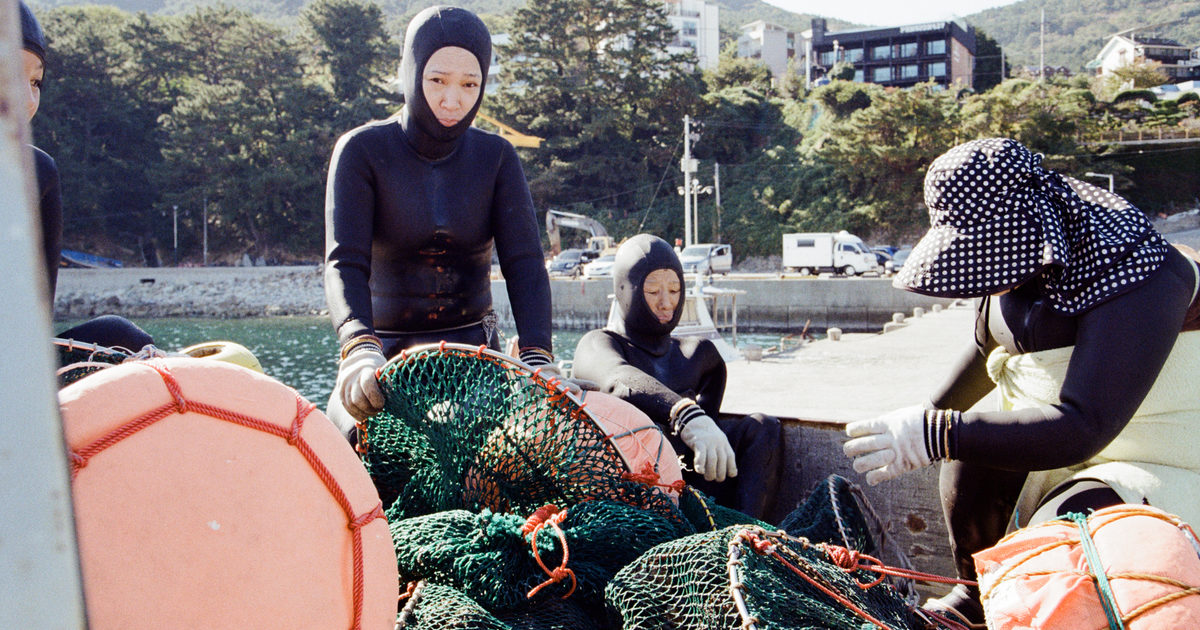
Six hours after disappearing out to sea, seven haenyeo return to the harbor in Gujora-ri, a remote coastal town on South Korea’s second largest island. Huge nets are filled to the brim with oysters, conches, sea cucumbers and abalone. As soon as they are loaded, the female freedivers work with military pace and precision in pink and yellow kitchen gloves.
“Take this,” Yoon Mo-gum says and hands the new recruit, Shin Ho-jin, two large abalone. “But you caught them?” Shin asks, looking surprised. “It’s OK,” the 63-year-old replies, pushing the two molluscs over to her. Everything they catch determines their salary. The most valuable and sought-after is the abalone.
Such are the ways of the haenyeo; female freedivers that for centuries have been known as South Korea’s remarkable clan of seawomen. The first time Shin read about them, she was spellbound. 70 and 80-year old women freediving? Why had she not heard about them before? Pent up at her desk in a gaming company in central Seoul, the 34-year-old was drawn to the divers’ descriptions of how they understood the rhythms at sea. How they had worked together to protect the ocean. And how, despite being well over retirement-age, they still went out diving.
But most of all, Shin was attracted to the sense of community. In the office, she felt like a machine. “They told me: ‘Make money, make money, we don’t want to hear about your children, you just have to work!’”, she recalls. Not knowing anything about freediving, she thought: “This is what I’ll do”.
I met Shin last October. In a coffee shop she turned up in a cobalt blue down vest and looked nothing like she had just been diving for six hours straight. The first haenyeo came from Jeju, South Korea’s largest island, Shin told me. Several were trained already at the age of 10 and dived through adolescence and young adulthood, expectant mothers dived during pregnancies and older women into their mature years.
On Jeju there were over 26,000 haenyeo in 1960. Due to the dangerous nature of freediving, however, many wanted their descendants to have a different life – sending them off to university rather than to sea. The numbers dwindled, and in 2014 Yang Hi-bum, a Jeju government official, said that “most of the haenyeo will be gone in 20 years unless we have new recruits”. Two years later, when UNESCO inscribed the female freedivers as an Intangible Cultural Heritage, they were suddenly on everyone’s lips – not only in South Korea, but all over the world. Academies to train future recruits started popping up, both on Jeju and Geoje.


